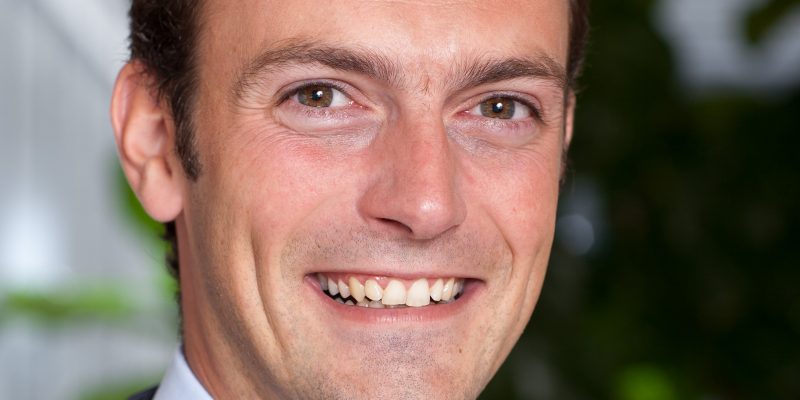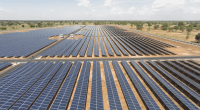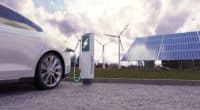African countries are gradually lifting the restrictions imposed as a result of the Covid-19 pandemic. Although the coronavirus health crisis has not yet been contained, the easing of restrictions raises questions about the impact of the disease in Africa, particularly in the highly dynamic solar energy sector. AFRIK 21 interviewed specialist John Frederick van Zuylen, founder of the African Solar Industry Association (Afsia), to find out what the situation is. Below is his analysis on the subject.
The African Solar Industry Association (AFSIA), of which you are the founder, was planning to present its first “AFSIA Solar Awards” on July 2, 2020 in Barcelona, Spain. Will the date be maintained despite the Covid-19?
No, we have decided to postpone the date. The event will finally take place on October 21, 2020. The ceremony will take place at the same time as the Africa Energy Forum that will be held from October 20 to 22, 2020 in Amsterdam, the Netherlands. And so we are following this major energy event in Africa.
How is Africa’s solar market doing?
At the moment, it is very difficult to make an assessment of the situation, because economic activities are a little bit at a standstill, and there are still travel difficulties. So making a picture of the current situation would not be easy. But generally speaking, the solar industry has been doing very well for several years now and it is expected to continue to grow while providing solutions to the problem of access to electricity in Africa.
At the moment though, a lot of stakeholders are facing difficulties and are trying to make the big push until the health crisis is over. There are concerns among small entrepreneurs, but there are also small companies who believe that these are exceptional circumstances that will pass.
Is it already possible to assess the impact of Covid-19 on the solar market or on the projects underway in Africa?
To quantify… probably not, but there are already trends that are emerging. The impact is more or less strong according to the sector of activity in which we are in and according to the financial health of the company that we observe. For example, we recently had a conversation with one of the members of the African Solar Industry Association (AFSIA), which is Sterling & Wilson, one of the largest solar project construction companies in the world. They have projects all over Africa… with projects going from 20 MW to 30 MW to 100 MW. They haven’t stopped construction, but they have adapted to the present situation, for example by reducing the interaction between the workers.
On the other hand, companies that are active in the solar home kits business are more affected by the Covid-19 because they work with a lot of salesmen who meet people in villages or on markets… an approach that requires interaction. As a result, the activities of these companies have come to a complete standstill.
How is transportation of equipment done, since most borders are closed?
There are indeed big challenges in terms of logistics. The situation at Sterling & Wilson is just one example. Apart from that, there are projects that have been suspended until everything gets back to normal. Basically, one positive aspect of a commercial or industrial project is the length of time it takes to implement it: companies have a little more leeway, since projects are planned over several months or even years. As a result, there is understanding between the different parties to say that the situation is exceptional and a few months delay can be expected. Other companies will have to wait, until the equipment arrives on site…
According to the African Development Bank (AfDB), 600 million Africans still do not have access to electricity. Is the Covid-19 not curtailing a little the ambition of electrification of the African continent?
We can see things negatively or positively. We can think that after the coronavirus, we are going to be faced with an economic crisis that will have an impact on Africa and therefore slow down the electrification projects in progress. We look at things positively, because with the health crisis, there are many international operators who realise how urgent it is to provide access to electricity on the African continent.
They join forces to support companies that provide solar solutions (energy) to care centres treating Covid-19 patients. This is the case in Nigeria with the investment company All On. The international stakeholders now realise that solar energy can provide a rapid solution to the problem of access to electricity. It seems like this health crisis is going to be a wake-up call.
How will business pick up in the solar kits and mini-grids sectors? And when will it happen?
Covid-19 has highlighted the great financial fragility of solar kit suppliers and that was inherent to their situation since they are mostly start-ups. These companies often have large teams, even if many employees work on a commission basis. Unfortunately, when it is not possible to work, these people find themselves without resources. But in the short term, the companies are not seriously impacted. They could find themselves in difficulty if the crisis persists, since they very often have little cash flow.
Covid-19 restriction measures are already being reduced in many countries. Hopefully, the situation will return to normal soon. At the same time, in response to the health crisis, many African countries have finally recognised the provision of solar kits as an essential service. This decision has enabled several companies to keep their staff on the ground to carry out repairs on solar installations. For the moment, solar kit suppliers can operate relatively normally, at least for those who have some stock.
What lessons will the solar sector get from Covid-19?
Perhaps covid-19 will lead to a consolidation of the solar kit segment, to greater professionalism or to the emergence of financially stronger operators. In recent years we have seen a large number of new companies, even in saturated markets, trying to capture market share. This is not viable. Covid-19 or not, at a certain point in time, there had to be some kind of skimming or rationalisation of the sector. The coronavirus will only accelerate a classic economic process.
Interview by Jean Marie Takouleu







